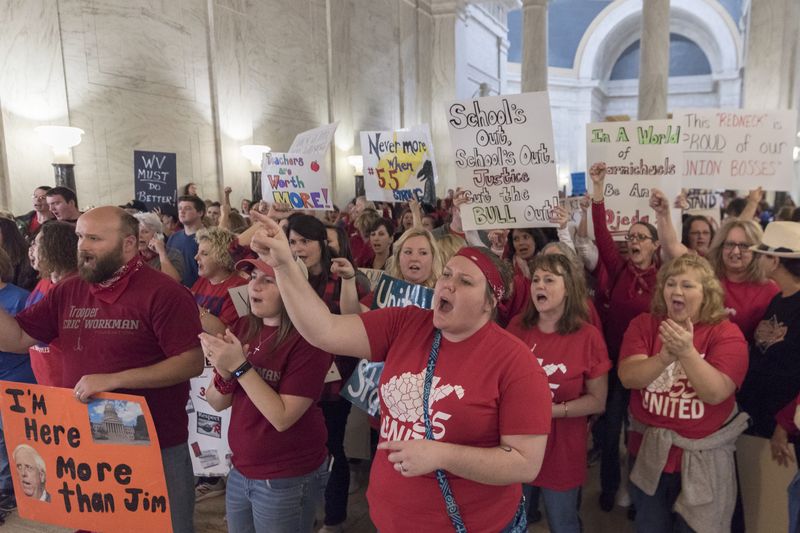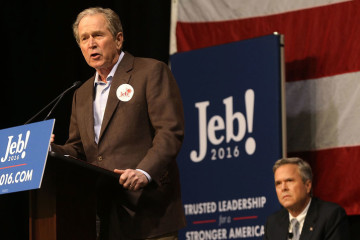West Virginia Teachers Strike For Improved Pay and Benefits
Friday, March 1, marked the seventh straight day all of the West Virginia public schools have been closed due to a statewide teacher strike to protest the rising cost of health insurance within the Public Employees Insurance Agency (PEIA). The end of the strike appeared to be near as West Virginia Governor Jim Justice reached a tentative deal with union leaders earlier in the week to give teachers a 5% raise for the next fiscal year. However, the deal failed to address the issue of healthcare, leading to continued protests from the teachers of West Virginia. Regardless, the deal fell flat as Senate President Mitch Carmichael expressed his concern at the lack of state funds needed to give the teachers the proposed raise. However, House Speaker Tim Arstead presumed that the Governor’s revenue estimates for 2019 “should allow us to afford larger pay raises.”
All 55 West Virginia counties have been closed since late last week leading to development of the unifying slogan “55 Strong.” Teachers in West Virginia are ranked 48th among U.S. states in teacher salary, with an average being $45,622. With the changes to health insurance premiums, it just became harder for teachers to get by given their already low salary.
Katie Endicott, a West Virginia high school teacher, spoke with the New York Times on the origins of the strike and also what drove the schoolteachers to strike. Endicott emphasized that with the current salary she is given, she is forced to live paycheck to paycheck. The state government of West Virginia offered to supplement the rise in healthcare premiums by offering a 1% pay raise, which equates to approximately 88 cents every two days. With bills to pay, the addition of hundreds of dollars in healthcare expenses drove the teachers to make a change.
Protesters have made trips to the Capitol, in Charleston, with hopes persuade the state legislation and the governor to enact change. According to Endicott, the teachers vying for improved pay and benefits have been vastly ignored by the state policymakers. Sen. John Unger, a Democrat, has stated that it’s the Senate’s fault the bill hasn’t gone through. In a recent development, Gov. Justice has announced a plan to find a solution to the rising healthcare costs while the PEIA board has agreed to freeze their rates for the coming year.
The striking teachers appear dedicated to sticking it out for at least a while longer. At the Capitol, they have sung “We’re not gonna take it,” in unison while chanting to the state government that they would see them soon. The state senate has slashed the proposed pay raise from five percent to four percent, prompting union leaders to continue the strike. Justice stressed on Twitter that the back and forth “wrangling” needs to stop. Justice says that he prefers the five percent raise over the newly proposed four percent raise.
20,000 teachers are on strike currently while 277,000 students are out of class in West Virginia.




